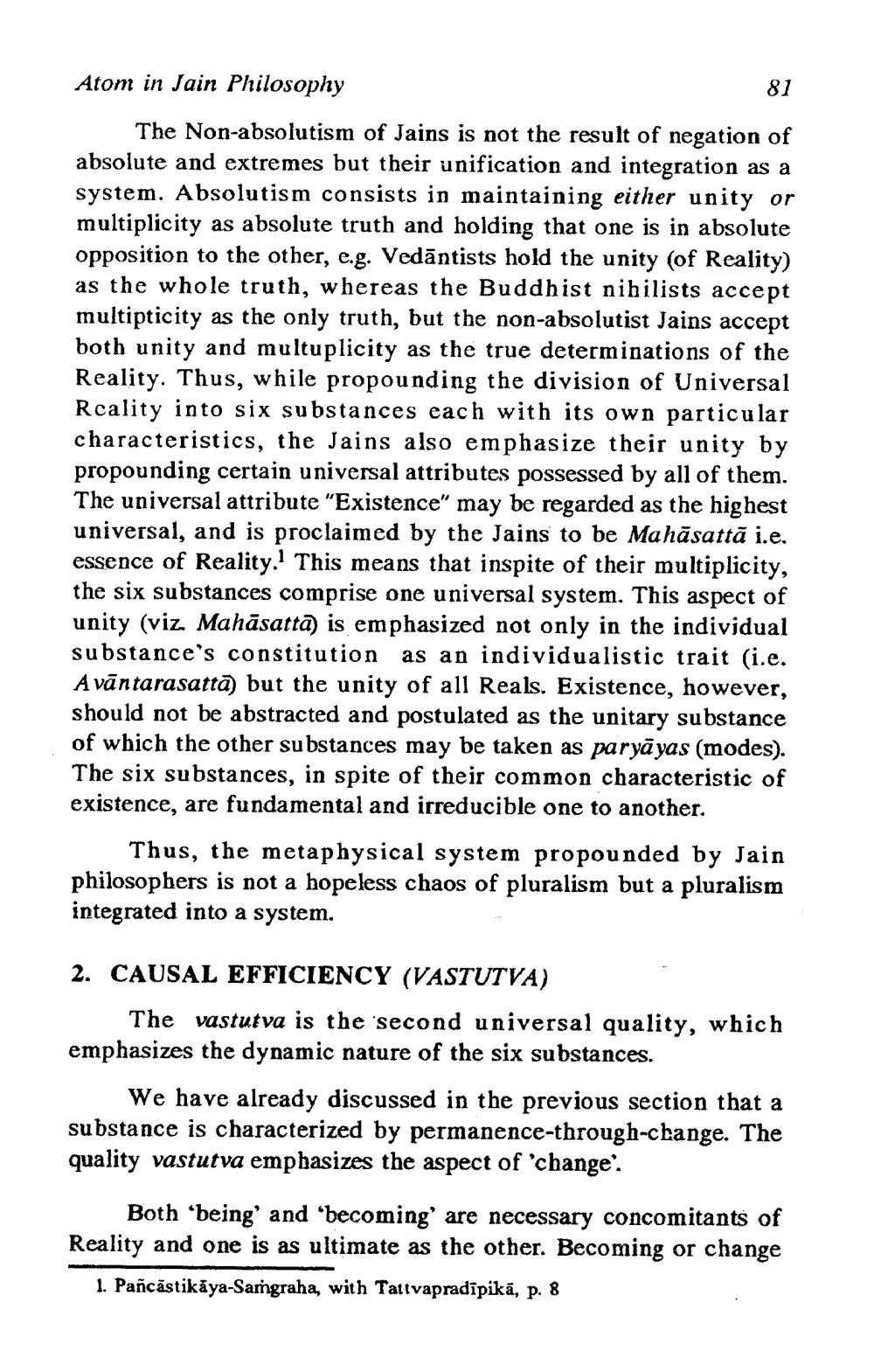________________
Atom in Jain Philosophy
81
The Non-absolutism of Jains is not the result of negation of absolute and extremes but their unification and integration as a system. Absolutism consists in maintaining either unity or multiplicity as absolute truth and holding that one is in absolute opposition to the other, e.g. Vedāntists hold the unity of Reality) as the whole truth, whereas the Buddhist nihilists accept multipticity as the only truth, but the non-absolutist Jains accept both unity and multuplicity as the true determinations of the Reality. . Thus, while propounding the division of Universal Reality into six substances each with its own particular characteristics, the Jains also emphasize their unity by propounding certain universal attributes possessed by all of them. The universal attribute "Existence" may be regarded as the highest universal, and is proclaimed by the Jains to be Mahāsattā i.e. essence of Reality. This means that inspite of their multiplicity, the six substances comprise one universal system. This aspect of unity (viz. Mahāsatta) is emphasized not only in the individual substance's constitution as an individualistic trait (i.e. Avāntarasatta, but the unity of all Reals. Existence, however, should not be abstracted and postulated as the unitary substance of which the other substances may be taken as paryāyas (modes). The six substances, in spite of their common characteristic of existence, are fundamental and irreducible one to another.
Thus, the metaphysical system propounded by Jain philosophers is not a hopeless chaos of pluralism but a pluralism integrated into a system.
2. CAUSAL EFFICIENCY (VASTUTVA)
The vastutva is the second universal quality, which emphasizes the dynamic nature of the six substances.
We have already discussed in the previous section that a substance is characterized by permanence-through-change. The quality vastutva emphasizes the aspect of 'change'.
Both 'beingand 'becoming are necessary concomitants of Reality and one is as ultimate as the other. Becoming or change
1. Pañcâstikaya-Saṁgraha, with Tattvapradīpikā, p. 8




